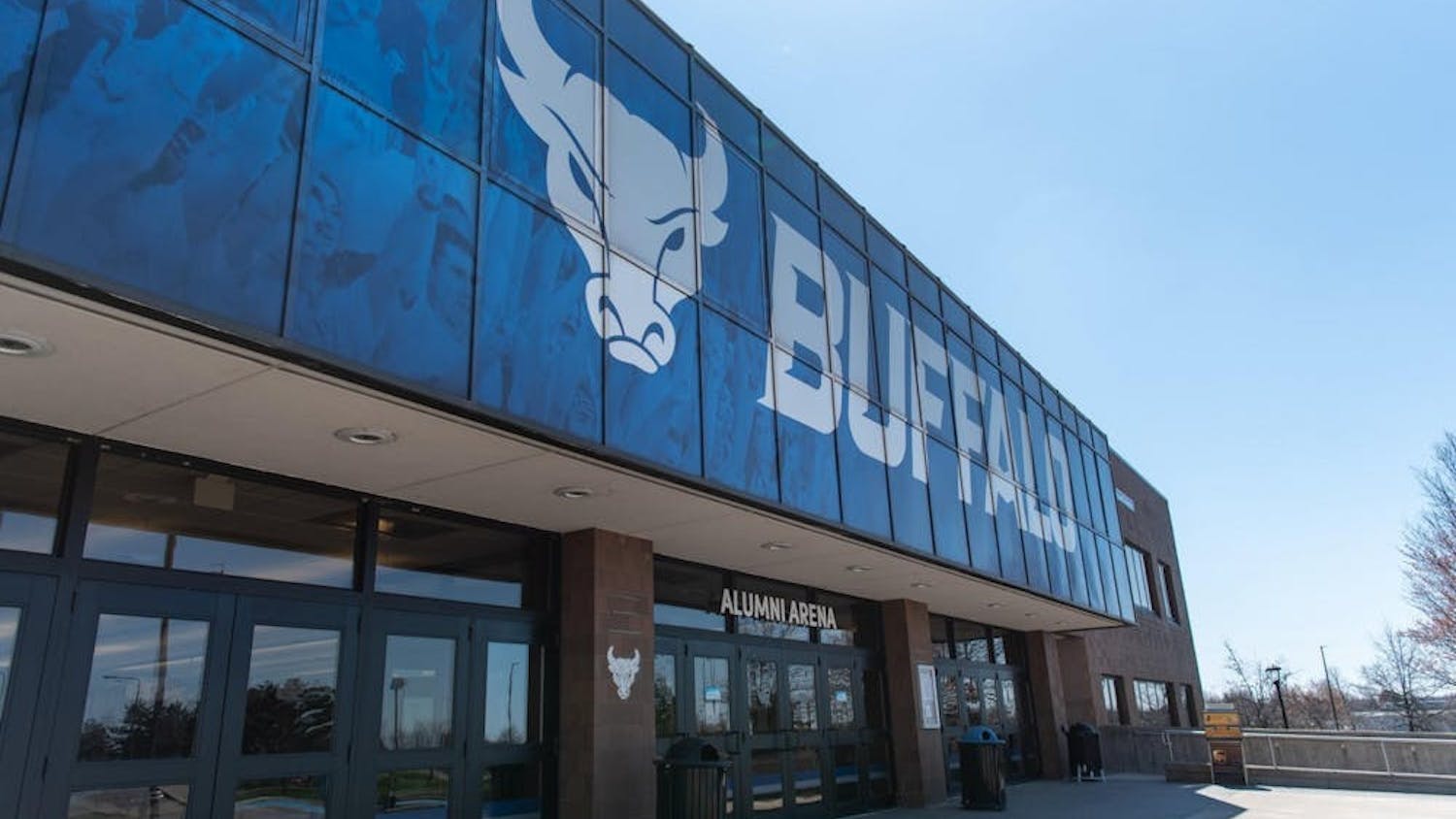All the makings of a historic night were visible at Kleinhans on Thursday night.
Renowned author Toni Morrison took the stage in another installment of Just Buffalo Literary Center’s 2017-18 BABEL series. Morrison, speaking on the 50th anniversary of Dr. Martin Luther King Jr.’s address in the same venue, discussed her lengthy career and discussed each of her 11 well-read novels.
Before the main event, singer-songwriter Drea d’Nur opened the evening with a dose of soul. The artist's deep ranging rendition of “A Change is Gonna Come” was met with thunderous applause.
Barbara Cole, artistic director of the Just Buffalo Literary Center, followed with recollections of King’s address at the venue. Cole said there are still great lengths for America to go to solve issues of racial injustice.
Morrison kicked off her address by noting Buffalo’s large size and beautiful architecture, right before “dauntingly” referencing the speech’s relationship to King’s historic address.
King’s historic shadow may have been cast over the venue, but the author made it her night.
She recalled a recent mis-count she had on her novels and said writing had never been “preordained” for her. Morrison then hit a serious yet funny note, telling the crowd that her grandfather or "Papa" read the bible five times.
“[I mean] he was born in 1860, what books did they have,” Morrison joked, quickly explaining that it would have been illegal for him to read at the time.
During shifts working in her library, she realized not everything that had been written had really been published.
“At [the] age of 39, I wrote my first book,” Morrison said. “There really are not books written for me...and many books by African-American writers were written about me but not for me, for white people.”
It made her pick up the pen to create “The Bluest Eye,” a book inspired by the deep hurt of Morrison’s friend caused by racism. The book was based on a conversation in which Morrison insisted God existed but her friend felt otherwise. Her friend didn’t believe in God because she never got the blue eyes she prayed for.
The reason for her friend’s belief? She never got the blue eyes she prayed two years for.
Morrison said the novel and its creation wasn’t always “Shirley Temple” and explained people, even black women, "hated the book because of its inclusion of incest."
After discussing “Tar Baby,” Morrison explained her involvement in “The Black Book,” a collection of materials she came upon in her research. In the collection she read an old newspaper article about a slave woman killing her child, a concept that inspired her to create “Beloved” after yearning for the child’s perspective on the death.
Morrison discussed “Paradise” and its connection to her great-grandmother’s view on blackness.
“These children here have been tampered with,” her great-grandmother noted of her and her sister.
“So I began my life knowing I wasn’t pure but being dark black [like my great-grandmother] really was,” Morrison explained. The book, dealing with a black town subscribing to racial purity and outliers around the town, somewhat got back at her great-grandmother for her ideology.
Morrison examined her book “A Mercy” and how she worked with a book designer on a head cover to create a map of New England without English identifying words. It “predated racial conflicts” like slavery for Morrison, constructing the map with a purpose.
After discussing themes of compassion penned in “God Help the Child” and the deliberate lack of color termed in “Home,” Morrison talked about visualizing her characters in her day-to-day life. She wrapped up the evening by noting her next novel, one which she jokingly said is her favorite.
Morrison, along with moderator Barbara Cole, conducted a brief on-stage Q&A. She appeared sillier than previous instances throughout the night and explained once that she has the "best sex scenes," which caused the audience to erupt in laughter.
She broke down her disgust with film adaptations, like that of “Beloved” despite her love for the actress who played her character Denver. She didn’t go without reflecting on race relations in America however, breaking down that in order to “teach [race]” one must “believe” and “behave” in the form of acceptance and love.
As the session came to a close, one question asked what steps could be taken to achieve King’s famous dream.
She backed her final point by telling the story of a hall at Princeton University to be named after her, Morrison Hall. The hall, built by slaves, and its renaming caused a problem for Morrison as she writes a speech she has for the university in the coming weeks.
“It’s this whole thing of examination, what society was and what happened,” Morrison said. “Our exposure to something is far more impact than erasing it, hiding it and calling it something else.”
Attendees like Vice Provost for Inclusive Excellence Teresa Miller thought amazingly of Morrison’s speech throughout the night, finding it both inspirational and relevant.
“She’s candid, she’s unscripted, she’s insightful and I loved the very last thing she ended on [regarding] Princeton and slavery,” Miller said. “Being able to say, imagine - how am I supposed to make this [speech] sound like something it’s not. But the fact that she said it’s important not to erase but that history and memory, to learn from things, is the lesson that we all could learn from. It’s so applicable to today.”
Benjamin Blanchet is a senior arts editor and can be reached at benjamin.blanchet@ubspectrum.com.

Benjamin Blanchet is the senior engagement editor for The Spectrum. His words have been seen in The Buffalo News (Gusto) and The Sun newspapers of Western New York. Loves cryptoquip and double-doubles.





